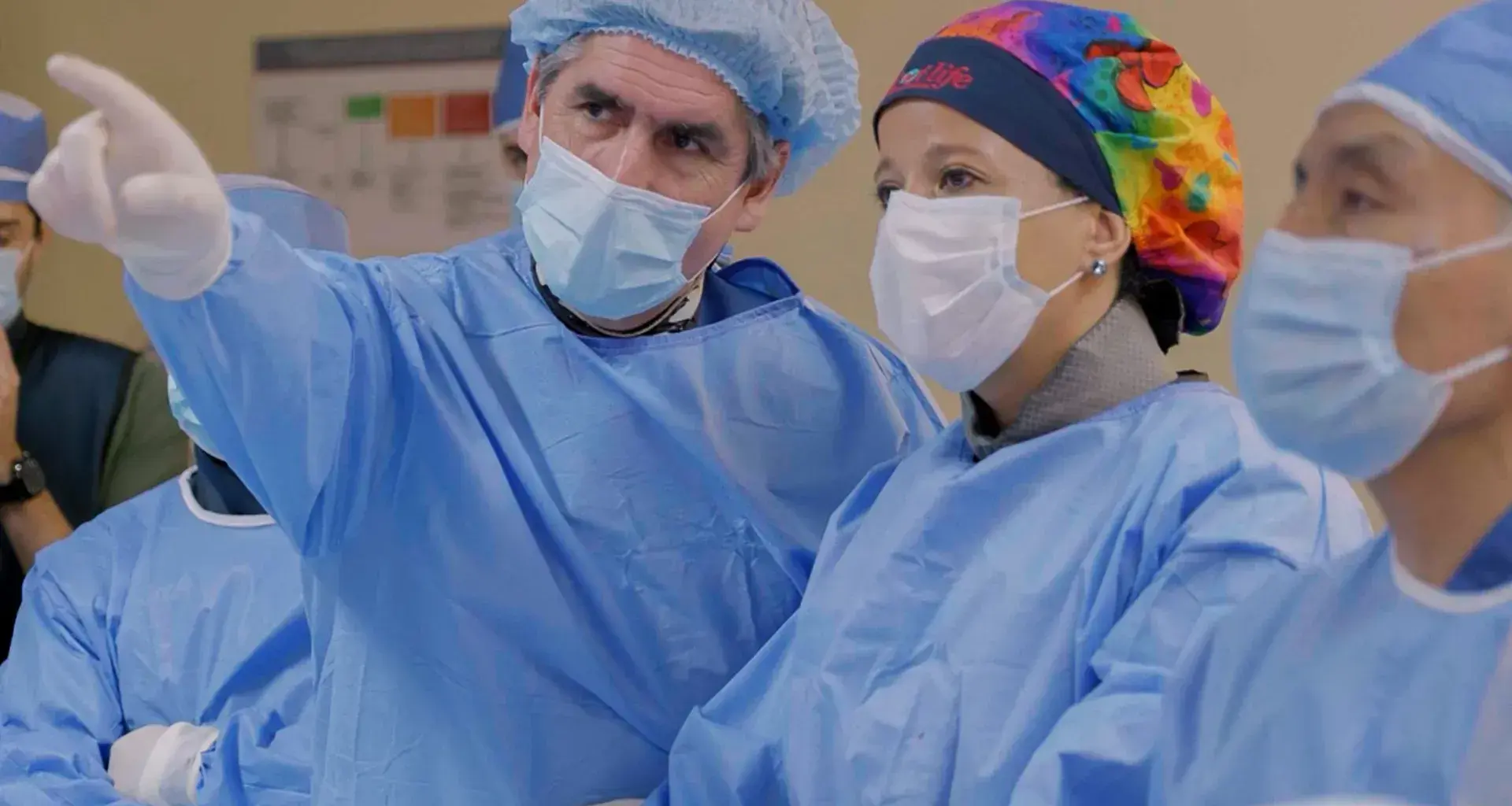For the first time in Mexico, a team of interventional cardiologists led by Dr. Cecilia Britton from TecSalud has implanted the self-expandable Venus P-Valve.
This device is used to treat cases of pulmonary failure and to replace damaged heart valves, thereby preventing blood going to the lungs from flowing back into the heart.
“We hadn’t had the opportunity to have these valves in our country, but now it’s a reality,” said the doctor, who is a specialist in congenital heart disease.
The valve was implanted in a 35-year-old patient at the Zambrano Hellion Hospital after the Federal Commission for the Protection against Health Risks (COFEPRIS) authorized its use in Mexico.
“This is an important achievement for TecSalud and an opportunity for patients suffering from these diseases to receive innovative treatments,” added Dr. Britton.

Francisco, the first patient to receive the valve
Jesús Francisco García Garza was born with a congenital heart defect known as Tetralogy of Fallot and underwent open-heart surgery at Texas Children’s Hospital when he was 5 years old.
“After his surgery, he led a normal, calm life, got plenty of rest, and was able to continue with his studies,” said Francisco’s father.
However, he was referred to Dr. Britton five years ago because he was regularly coming to the emergency room suffering from panic attacks and feelings of impending death.
“Patients who have surgery for this condition can later develop pulmonary failure and it’s important to find the best time to treat it by implanting a valve,” said the doctor.
“We’d been waiting for the right moment to offer him this treatment and the moment arrived,” she added.
“The public sector will benefit most.” – Dr. Cecilia Britton

Francisco said that although he felt nervous when he received the news of the procedure, he knew it was the best way to treat the after-effects of the disease he had suffered since birth.
“I feel calm and happy to have my valve. I will be able to continue with my life in a more fulfilled way,” he shared.
After a day of recovery following the procedure, Francisco went home and returned to his normal daily activities.
The four heart defects caused by Tetralogy of Fallot
According to Dr. Britton, Tetralogy of Fallot involves four heart defects that cause problems:
- Ventricular septal defect
- Right ventricular outflow tract obstruction
- Right ventricular hypertrophy
- Overriding of the aorta

The doctor explained that this condition obstructs blood flow from the heart to the lungs and it is necessary to completely remove the obstruction to repair it.
“By doing that, flow to the lungs returns, but some of that blood goes back to the heart,” she said.
The return of blood to the heart causes pulmonary failure, which means that not all the blood going to the lungs reaches them and cannot provide oxygen for the rest of the body.
“By implanting the valve, we allow free passage of blood to the lungs, but it also functions as a gate, preventing it from returning to the heart,” she added.
Now a reality in Mexico
It is important to note that Dr. Francisco Garay, Head of the Pediatric Cardiology Unit of the Clinical Hospital at the Catholic University of Chile, participated in the procedure.
“This is a highly complex piece of medical technology that allows Latin American countries to remain at the cutting edge, and offers patients less painful treatments with long-lasting benefits,” he said.
“It’s good to know that there are institutions here in Mexico which are capable of offering modern, effective, and less invasive technology and solutions, and that there are highly trained professionals here in the country,” he said.

Dr. Britton added that “the public sector will benefit most and is where a greater number of procedures using this valve will be carried out.”
This is why an opportunity was offered to doctors from the “Ignacio Chávez” National Institute of Cardiology to watch the implantation procedure so they could learn details about the process and carry it out soon.
“This is an important achievement for TecSalud and the country.” – Dr. Cecilia Britton
YOU MIGHT ALSO BE INTERESTED IN:





